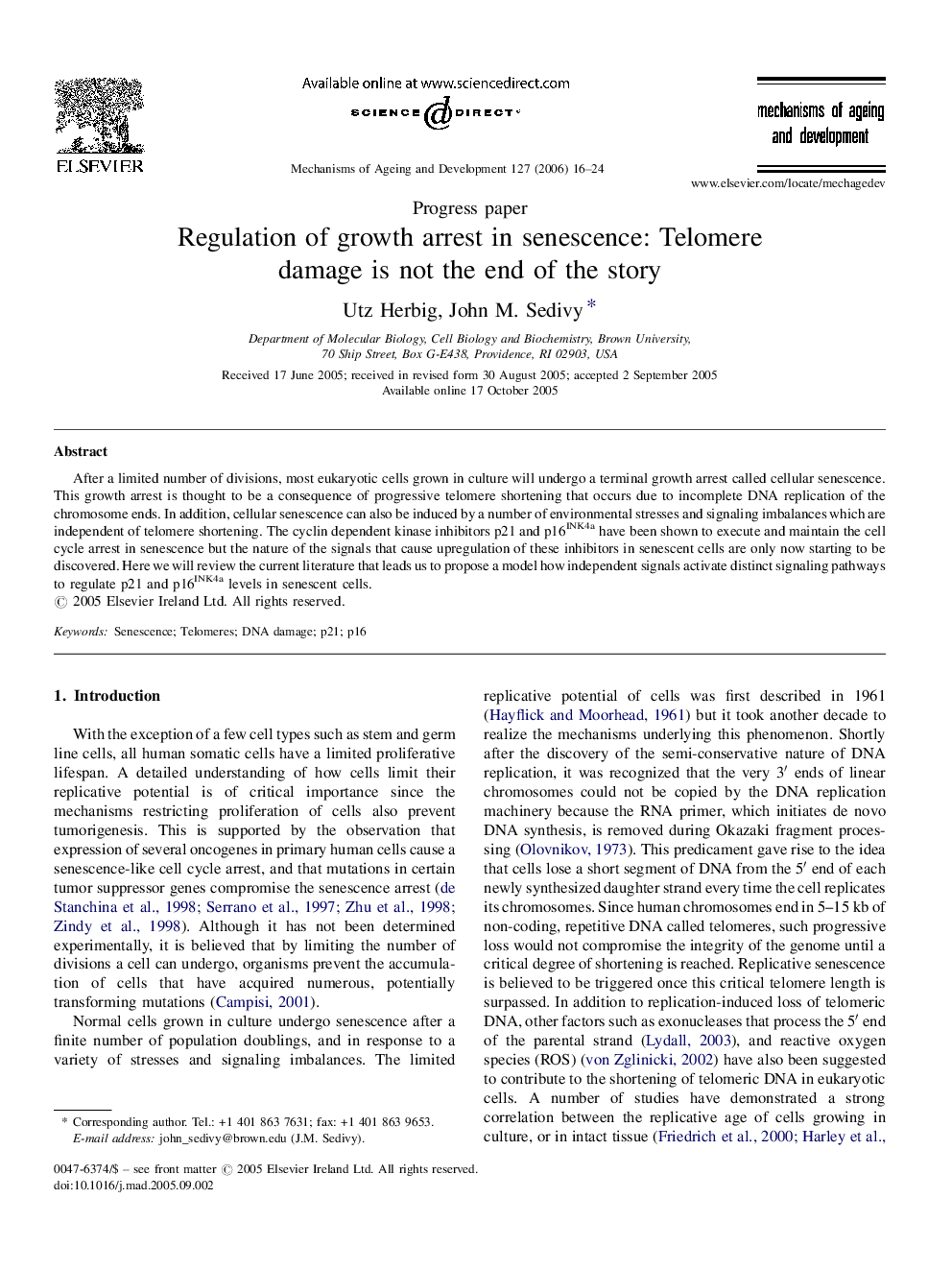| Article ID | Journal | Published Year | Pages | File Type |
|---|---|---|---|---|
| 1920025 | Mechanisms of Ageing and Development | 2006 | 9 Pages |
After a limited number of divisions, most eukaryotic cells grown in culture will undergo a terminal growth arrest called cellular senescence. This growth arrest is thought to be a consequence of progressive telomere shortening that occurs due to incomplete DNA replication of the chromosome ends. In addition, cellular senescence can also be induced by a number of environmental stresses and signaling imbalances which are independent of telomere shortening. The cyclin dependent kinase inhibitors p21 and p16INK4a have been shown to execute and maintain the cell cycle arrest in senescence but the nature of the signals that cause upregulation of these inhibitors in senescent cells are only now starting to be discovered. Here we will review the current literature that leads us to propose a model how independent signals activate distinct signaling pathways to regulate p21 and p16INK4a levels in senescent cells.
